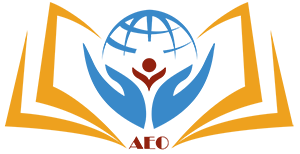
Afghanistan Economic Outlook
September 2023
Afghanistan Economic Outlook, is a creative initiative of the Afghanistan Economic and Legal Studies Organization (AELSO) which reflects most important & the latest economic events that happened during a month in Afghanistan.
By reading this economic newsletter, that has designed in three languages (Pashto, Dari & English), you can get a wider overview of Afghanistan’s economic situation.
Members of private security meet with Kazakhstan counterparts
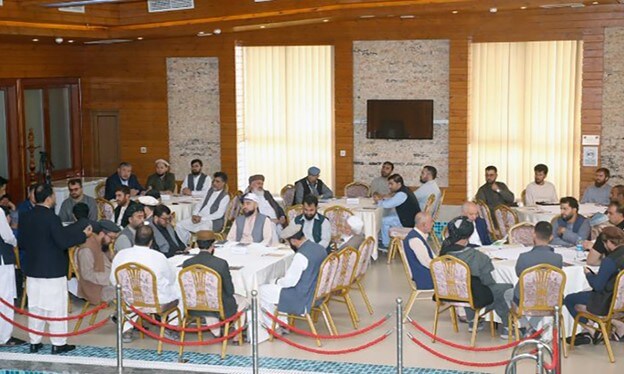 A bilateral meeting between members of the private sectors of Afghanistan and Kazakhstan was held in cooperation with the Ministry of Industry and Trade on Tuesday with the aim of attracting more investment in the country.
A bilateral meeting between members of the private sectors of Afghanistan and Kazakhstan was held in cooperation with the Ministry of Industry and Trade on Tuesday with the aim of attracting more investment in the country.
At the meeting, representatives of the private sector of the two countries discussed investments in various sectors including the non-alcoholic beverages sector, gemstones stones and minerals, chemical fertilizers, car batteries, clothing and textiles, petroleum products, flour and wheat, the ministry said.
They also discussed tourism, investment in restaurant businesses and food, the ministry added.
Furthermore, the businessmen and investors of Kazakhstan thanked the Afghans for their hospitality and described Afghanistan as a safe place and a suitable environment for business and investment.
Representatives of the private sector of Kazakhstan spoke about holding exhibitions in Kabul, Balkh and Kandahar provinces, adding that in the near future they plan to hold exhibitions of Afghan manufacturing industries in Kazakhstan and an exhibition of Kazakh products in Afghanistan.
Over 80,000 square meters of Afghan carpets exported monthly
 The Union of Carpet Producers and Exporters in the western zone of the country says over 80,000 square meters of carpets are exported to world markets every month, and that the volume of exports has continued to grow.
The Union of Carpet Producers and Exporters in the western zone of the country says over 80,000 square meters of carpets are exported to world markets every month, and that the volume of exports has continued to grow.
The union officials, however, say they do not have direct access to the world markets, but Afghan carpets are sent to the markets of European and American countries through Pakistan.
“According to a survey conducted in 1402, it can be said that 80 to 100 thousand square meters of carpets are exported to different countries every month,” said Mohammad Rafi Naderi, head of the union.
Carpets are usually exported through Pakistan to the US, Canada, England, European countries and some Asian countries, he said.
Meanwhile, carpet sellers in Herat city expressed concern saying that although the market for carpets has improved, they cannot send domestic handwoven carpets to global markets directly.
According to them, Afghan carpets are still exported to the world markets as having been woven in neighboring countries, stressing that there was a need to promote Afghan carpets.
“Now traders don’t come, now our goods go to Pakistan, and from Pakistan, our carpets are being exported under the name of Pakistani goods abroad,” said Abdul Khaliq Qaderi, a carpet seller.
Meanwhile, Herat’s Department of Industry and Commerce says the process of exporting carpets abroad has improved recently, so efforts are being made to improve the carpet industry and export it to global markets.
“In each zone, places have been selected for better export, good control and packaging,” said Bashir Mohammad Seerat, head of Herat Industry and Commerce Department
According to him, due to the export of carpets from Herat, a facility is being considered where carpets can be packaged.
UK Investors in Afghanistan
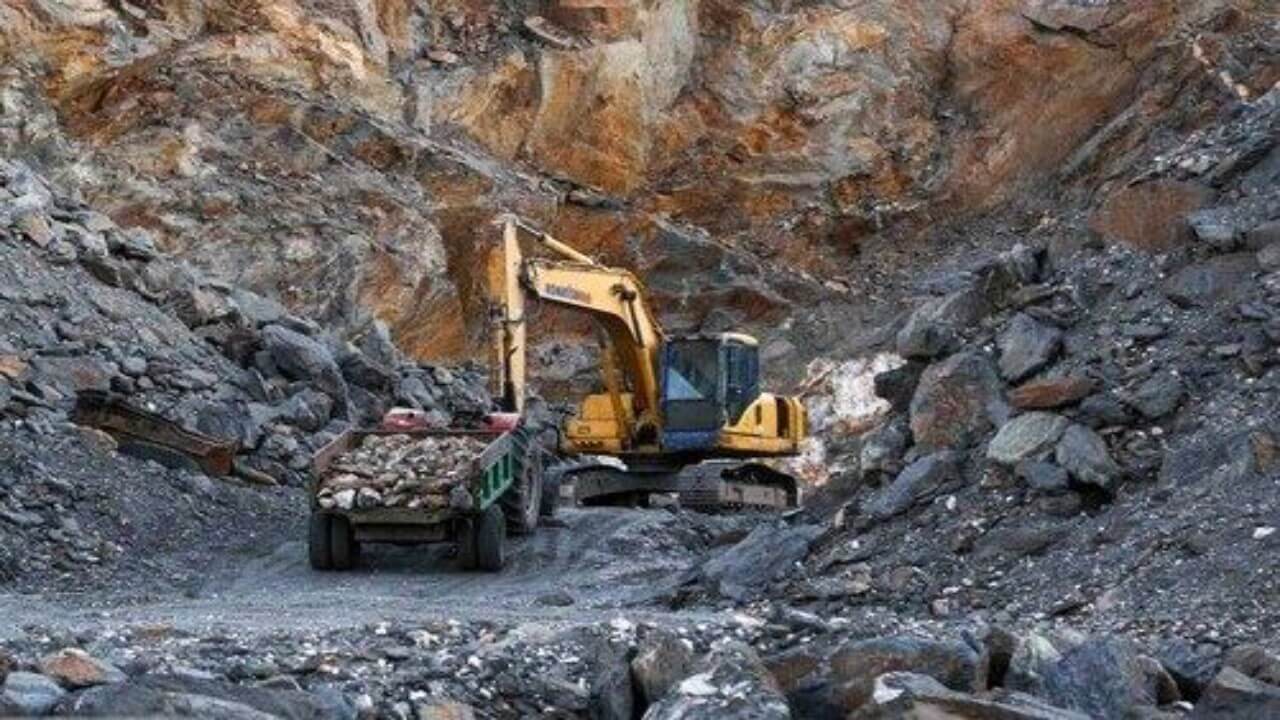 Shahabuddin Delawar, the Acting Minister of Mines and Petroleum, met with a British investor, Anthony Redd, on Wednesday where the two discussed opportunities available in the mining sector.
Shahabuddin Delawar, the Acting Minister of Mines and Petroleum, met with a British investor, Anthony Redd, on Wednesday where the two discussed opportunities available in the mining sector.
According to a statement from the ministry, the two parties discussed the creation of a conducive working environment and security measures across the country to attract foreign companies to Afghanistan.
During the meeting Redd expressed his interest in investing in Afghanistan’s mines, the ministry said.
Delawar pledged his cooperation and commitment to facilitating foreign investments in Afghanistan.
Nearly 800 Tons of Pine Nuts Worth $8 Million Exported
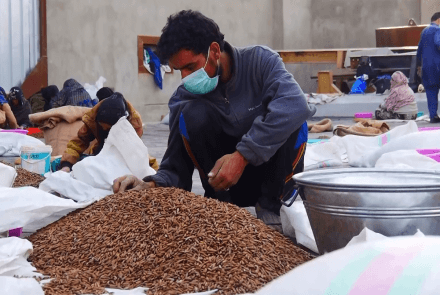 The Ministry of Industry and Commerce said that in the last five months, they have exported nearly 800 tons of pine nuts worth eight million dollars.
The Ministry of Industry and Commerce said that in the last five months, they have exported nearly 800 tons of pine nuts worth eight million dollars.
According to the officials, pine nuts are exported directly to other countries, and they are trying to increase the amount of pine nuts.
“Fortunately, we are directly connected to China, the United Arab Emirates, and other countries, and we are still connected with Russia, and our exports are mostly connected through Afghanistan, by air and ports,” said Akhund Abdul Salam Jawad, spokesman for the Ministry of the Industry and Commerce.
According to the ministry, they have exported this amount of pine nuts to Pakistan, India, China, United Arab Emirates, and other countries.
Meanwhile, some businessmen added that to increase the export of pine nuts, it is necessary to meet their challenges.
“The price of air cargo from Afghanistan is very high. Of course, here the government should consider subsidy programs. Second, the problems…,” said Mahbobullah Mohammadi, a trader.
The Chamber of Commerce and Investment said that if the facilities are provided, the traders can export more than $100 million of pine nuts in a year, and the Islamic Emirate will also earn good income from this route.
“Annually, we export approximately $75 million, and if we process this in the best way and our processes continue here, we can increase the amount of exports to 100 million dollars,” said Mohammad Yonis Momand, first deputy of Commerce and Investment.
Based on the statistics of the Ministry of Industry and Commerce, in 1401, $49 million worth of pine nuts were exported abroad, and most of them were exported to Pakistan, China, and India.
NOTE: An earlier title of this story cited “Nearly 800 Tons of Pine Nuts Worth $800 Million Exported” but the correct figure is “$8 Million”. TOLOnews apologies for this mistake for its audiences.
Value of Signed Contracts in Mining Sector Reaches Nearly $7 Billion
 The Ministry of Mines and Petroleum (MoMP) said that the value of contracts signed in the mining sector in the past two years has reached nearly seven billion dollars.
The Ministry of Mines and Petroleum (MoMP) said that the value of contracts signed in the mining sector in the past two years has reached nearly seven billion dollars.
The Ministry’s spokesman Humayun Afghan told TOLOnews that these contracts have been signed with domestic and foreign companies.
“Investors in these seven contracts include Iranian, Chinese, Turkish, and British companies, with a total investment of about $6.5 billion,” said Afghan.
The spokesperson added that during this period, local firms were also given the contract for the extraction of 200 minor mines.
The lead mines in the province of Ghor as well as the oil and iron mines in Panjshir, according to the Ministry of Mines and Petroleum, are now ready for extraction and investors can invest in them.
“A proper policy should be created for the extraction of mines that ensures Afghanistan’s national economic interests. The same behavior should be done with neighboring countries and foreign and domestic companies,” said Shaker Yaqoubi, an economist.
“Mining can be useful, and valuable in terms of raising the level of employment in the country,” said Abdul Zohor Mudabar, another economist.
Meanwhile, the Afghanistan Chamber of Commerce and Investment (ACCI) said that the Islamic Emirate should hand over mining contracts to domestic and foreign companies while maintaining national interests.
According to the ACCI, the Islamic Emirate should offer the required facilities in the investment sector to draw in more foreign investment, and the international community should also lift the restrictions that have been put in place.
“The Ministry of Mines and Petroleum has a responsibility to provide easy and good conditions for both Afghan and foreign investors, and for the national economic interests, it must prepare the conditions to increase the level of investment,” said Mohammad Younis Momand, the head of ACCI.
Earlier, the Ministry of Mines and Petroleum said that all mine extraction is completely transparent and that no mine will be extracted illegally in the nation.
ADB Approves $400 Million in Grants to Afghanistan
The Asian Development Bank (ADB) said in a news release on Wednesday that it approved $400 million in grants to protect the prosperity and livelihoods of vulnerable Afghan people, particularly women and girls, and ease the adverse impact of the ongoing humanitarian crisis.
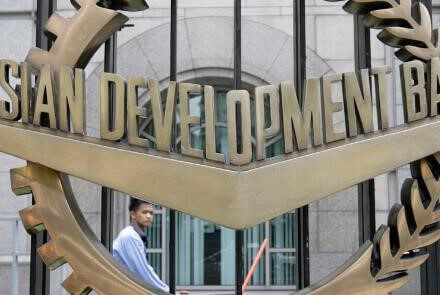
According to the news release, “the support, delivered through the United Nations (UN), will address emergency food needs, enhance domestic food production for medium-term food security, and provide core health services for the Afghan people.”
According to the ADB, a $100 million grant will enable the World Food Programme (WFP) to provide critical food assistance to more than 1.32 million acutely food-insecure people, prioritizing women-headed households and highly vulnerable groups.
Another $100 million grant will enable the Food and Agriculture Organization of the United Nations (FAO) to provide agricultural production support to more than 309,000 farm households for the cultivation of wheat, summer crops, vegetables, and livestock protection.
“More than 2.1 million people are expected to benefit from the FAO support,” the ADB said.
The press release further said that a $200 million grant will be given to the UN Children’s Fund (UNICEF), which will expand existing support and provide core health services in 10 provinces across the country covering about 7.5 million people.
“This includes basic health services such as newborn and maternal care, and essential hospital services, including nutrition and surgical care,” the press release said, adding the World Bank will support the same health services in Afghanistan’s 24 other provinces.
The project builds on ADB’s existing $405 million grant project, approved in January 2022, to support food security, essential health and education services for the Afghan people via the UN.
“More than 75% of this funding has been disbursed,” the press release said.
Afghanistan is experiencing a dire humanitarian crisis with more than 90 percent of the country’s population in need of assistance, according to the international organization’s reports.
The European Union in Afghanistan wrote on social media that “the EU is mobilising €140 million in basic needs and livelihoods assistance to support the Afghan people.”
According to the EU “funding supports education, health, agriculture and women’s economic empowerment.” The aid package was blocked in December last year in response to the ban on women working in NGOs in Afghanistan.
Meanwhile, the Ministry of Economy (MoE) welcomed the continuation of international assistance to Afghanistan, saying that it was needed to improve the conditions of the people.
“The assistance of the ADB and the EU are very effective to the people of Afghanistan. We welcome this assistance. We request the development and humanitarian assistance be increased for the people of Afghanistan,” said Abdul Latif Nazari, deputy Minister of Economy.
The ADB said that the project will contribute to the international community’s ongoing efforts to support the people of Afghanistan and will be implemented in close coordination with the UN, World Bank, and other partners.
The project will be implemented outside of the “de facto government’s systems” and in line with ADB’s approach to fragile and conflict situations.
A third-party monitoring firm will be engaged by the UN agencies to monitor implementation and verify the delivery of support to target beneficiaries, according to the press release.
Recent Afghanistan Economic Outlook
Join to our Newsletter
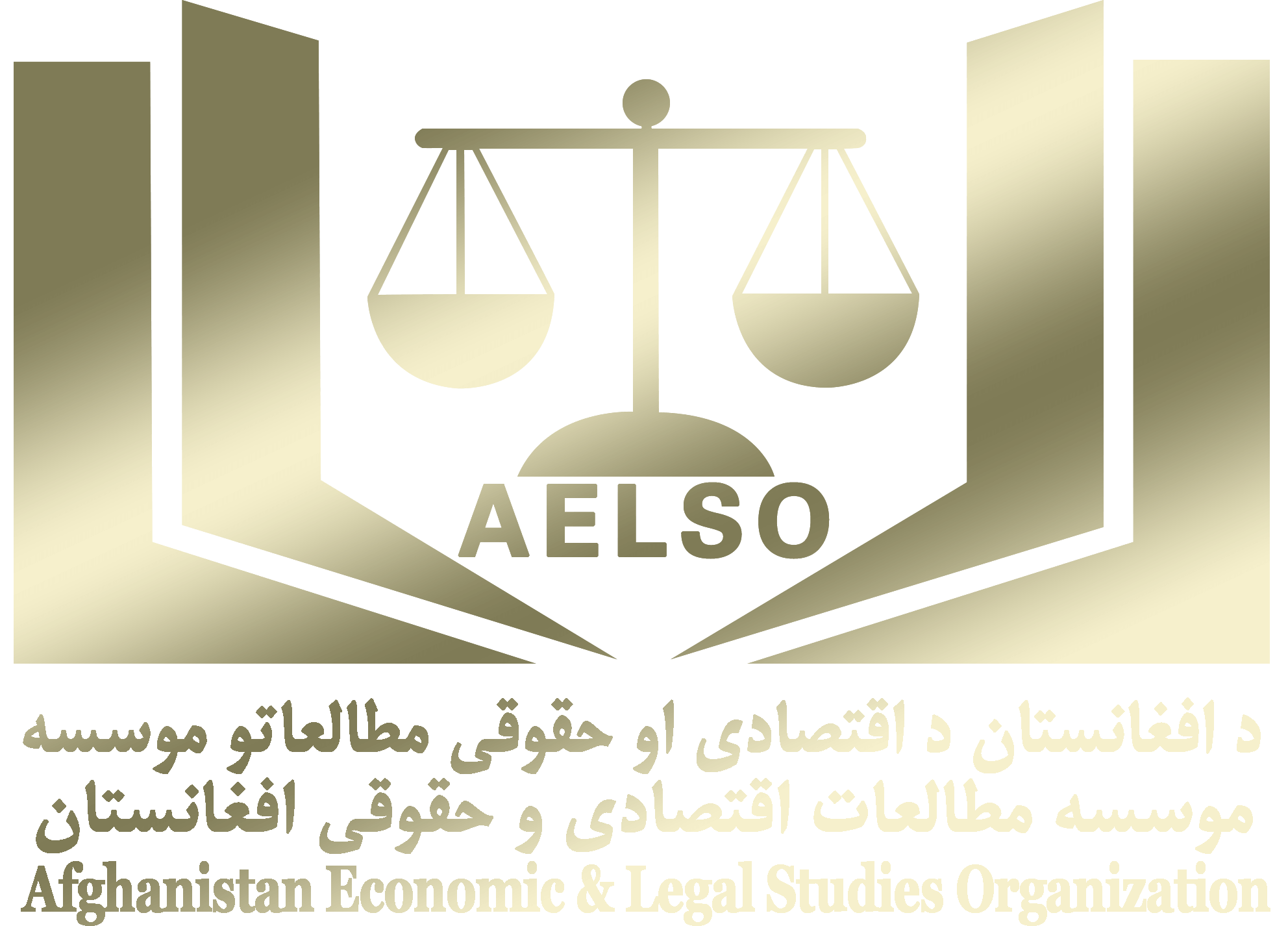
Advancing the Ideas for a Peaceful and Prosperous Afghanistan
© 2023 Copyright Afghanistan Economic & Legal Studies Organization.